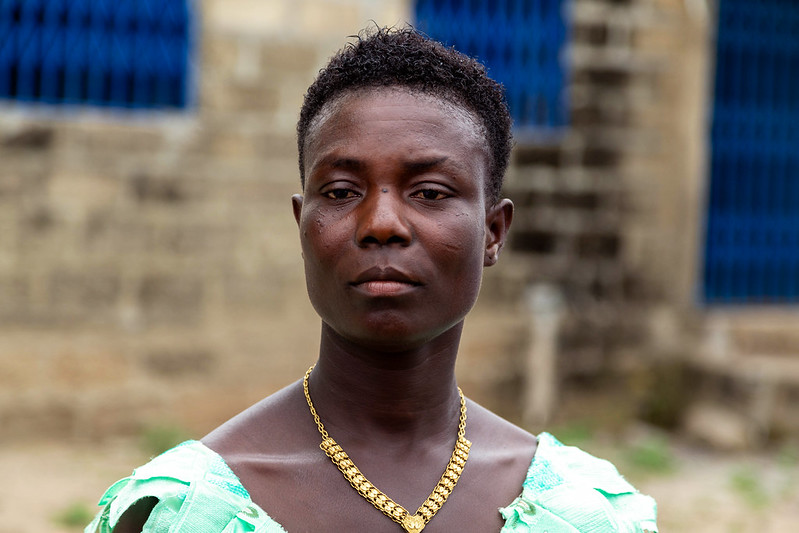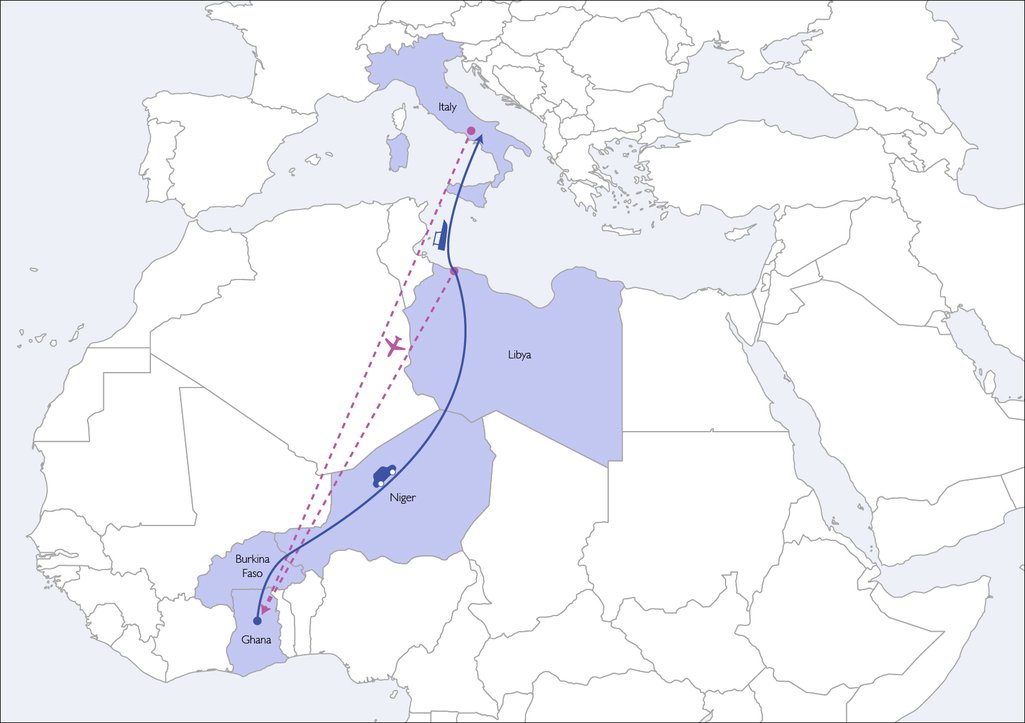Farmers in Ghana say cheap Italian tomatoes are ruining their businesses. Many have travelled to seek work abroad.
Sam Okyere is a lecturer in Sociology at the University of Nottingham. He is primarily interested in sociological, anthropological and policy analysis of childhood, child rights, human rights, social justice, (in)equality, globalisation, migration, racism and identity.
Cross-posted from OpenDemocracy

Adu Poku was a farmer in Ghana. It was all he’d ever known. The maize, okra and tomatoes he grew had brought in enough money to pay for his wedding, and to prepare for the birth of his twins. But then everything changed.
A mining company came and took over most of his land, and what he grew on the patch he had left was no longer enough to make ends meet. Cheap tomatoes from Italy had flooded the market and driven prices down. Most people in the area were struggling, and few could still afford to eat the more expensive local produce. If Adu kept farming, he was afraid he was going to starve.
He heard that people were travelling to Italy, and there they were earning enough to keep their families alive back in Ghana. He decided he had no choice but to try his luck as well. What happens after such a decision is made is the focus of this series.
Adu is one of six Ghanaians who tell the stories of their attempts to get Europe. All risked death in search of a better future, and many of them witnessed their travelling companions die along the way. These six men are still alive to tell us what they saw.
The economics of survival
This series sheds light on how, in the age of globalisation, agricultural exports from rich countries impact livelihoods and migration in poorer ones.
We’re not the first to report on stories like this. The documentary Displaced: Tomatoes and Greed from Deutsche Welle and the results of the Modern Marronage research project both corroborate the series’ main point. But here you will hear it straight from the people experiencing it, in their own words. Their message is simple: people are leaving Ghana’s Bono region, once the country’s bread basket, because canned and frozen foods from abroad are causing their farms to fail.
For them, the taste of this is made more bitter by what happens next. Farming is what these men know, so in Europe they often end up producing the products that had made their livelihoods unviable in the first place. They become the problem they’re trying to escape. On top of all this, their lack of papers makes them highly vulnerable in Europe. Exploitation, violence, dismal living and working conditions, precarity, and deportation are all commonplace for people in their position. All our contributors who made it were eventually detained and sent back. Getting their security back isn’t part of the bargain, despite the risks they take to get it.
That is, if they get there. Many never make it all the way. For several of our contributors, the journey ended in Libya, where they were arrested after failing in their attempts to cross the sea. They describe their time in detention as “torture”, but what they had experienced up until that point wasn’t much better. In order to pay for their sea crossing, most had spent weeks, months, sometimes even years labouring on construction sites, trying to save money while running the gauntlet of abusive employers, kidnappers, robbers, and armed actors every single day.

Giving in to ‘voluntary return’
Once caught, all our contributors eventually chose to be ‘voluntarily returned’ to Ghana. Usually this is done by the International Organization for Migration – the UN body in charge of coordinating such repatriations. What they say about that experience highlights the ethically ambiguous nature of the idea.
Voluntary returns are often presented as humanitarian. Proponents say they are good because they help people exit bad situations, even if they take migrants away from their goal rather than toward it. And to make that easier to accept, coordinators often offer migrants various kinds of support if they cooperate. This can include work and skills training, as well as capital to start small businesses or to invest in old ones.
Researchers have long argued that migrants’ experiences of voluntary return are often very different to what is being advertised. Our contributors confirm this.
To start with, they take issue with how the whole process is framed. They say that ‘voluntary’ is a strange word to use when their only alternative is continued detention in Italy or abuse by their Libyan jailers. That is a choice in name only, rather than saying ‘yes’ to something they want.
They also believe they were misled – they claim they were offered substantially more help than they ended up receiving. They got a plane trip to Ghana and a bus ticket back to their home villages, but not the support for a fresh start that they believe they were promised. As a result, most returned worse off to the same situation they had left.
Except for getting out of jail, nothing had been solved by voluntary return. Instead, it had exacerbated the challenges. Even after they were back for a year, our contributors said they were still facing worse socio-economic economic hardship, marginalisation, and vulnerability than before they first decided to travel. And the only solution they could see for that is more travel.
Returning people back to an on-going problem isn’t a solution. Our contributors call instead for safe and accessible travel options, equal rights, and dignity for all. They also call for their home government, the international system, and the EU to change practices and policies so that a dignified life at home is possible.
These voices are important. Please read them.
Explore the series
- I left Ghana to farm in Italy. I was exploited in both places
- Migrants returned to Ghana say they can’t afford to stay
- Italian tomatoes ruined my business, so I went to farm in Italy
- Migrants accepted voluntary return to escape ‘torture’ of Libya jail
- Migrants returned from Libya say UN has ‘forgotten’ them
- Farmers swap poverty in Ghana for exploitation in Europe
——-



Be the first to comment